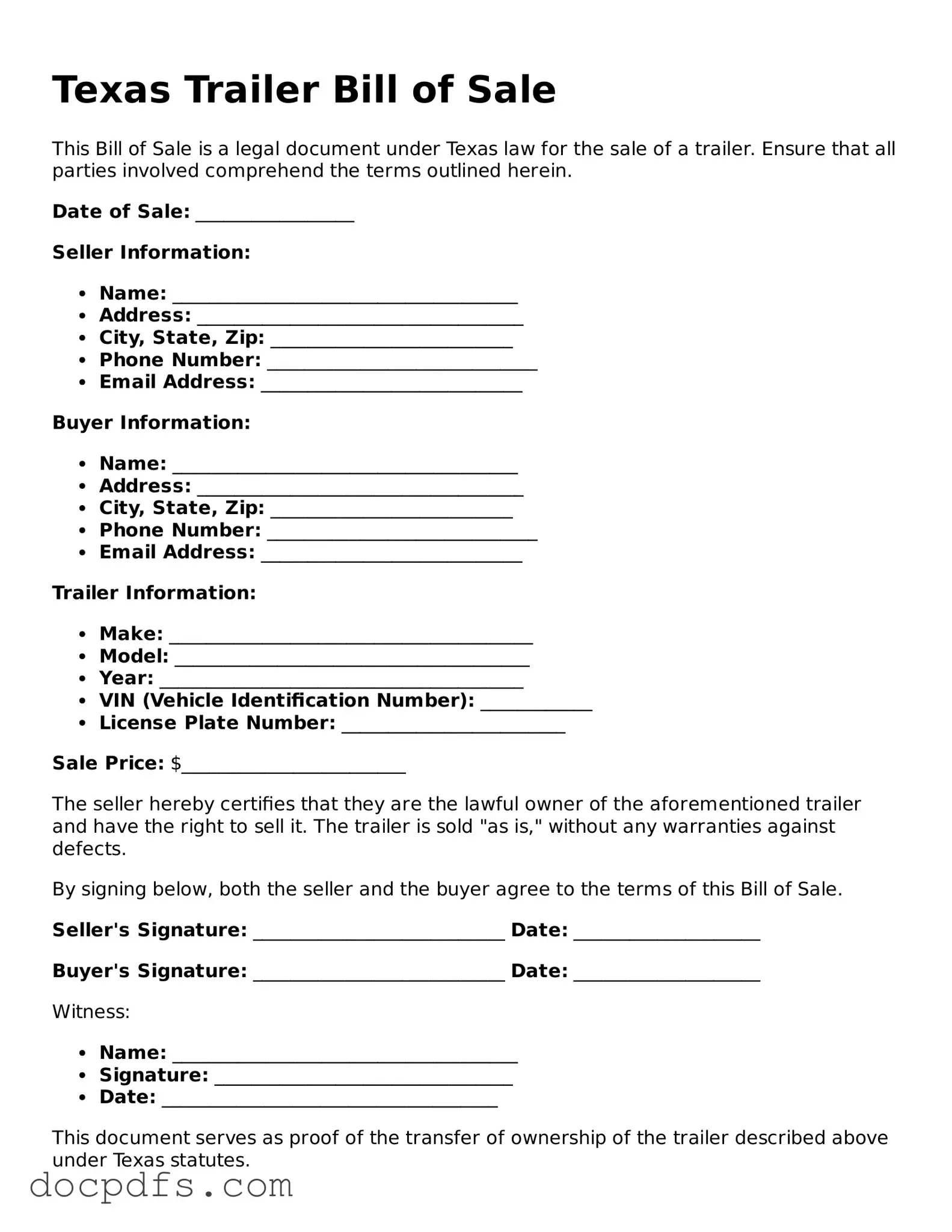The Texas Trailer Bill of Sale form is a legal document used to record the sale of a trailer in the state of Texas. This form serves as proof of the transaction between the buyer and the seller, detailing the specifics of the trailer, such as its make, model, year, and Vehicle Identification Number (VIN).
Why is a Bill of Sale important?
A Bill of Sale is crucial for several reasons:
-
It provides a legal record of the transaction.
-
It helps establish ownership of the trailer.
-
It can protect both the buyer and seller in case of disputes.
-
It may be required for registration and titling purposes with the Texas Department of Motor Vehicles (DMV).
The Texas Trailer Bill of Sale form typically requires the following information:
-
Full names and addresses of both the buyer and seller.
-
Description of the trailer, including make, model, year, and VIN.
-
Purchase price of the trailer.
-
Date of the sale.
-
Signatures of both parties.
While notarization is not required for the Texas Trailer Bill of Sale, having it notarized can add an extra layer of security and authenticity. It may also be beneficial if you plan to use the document in legal proceedings or for registration purposes.
You can obtain a Texas Trailer Bill of Sale form from several sources:
-
Online from the Texas DMV website.
-
From legal document service websites.
-
At local DMV offices or legal stationery stores.
Is there a fee associated with the Bill of Sale?
Generally, there is no fee for creating a Bill of Sale itself. However, fees may apply when registering the trailer with the DMV or if you choose to use a legal service to draft the document.
Can I use a generic Bill of Sale for my trailer?
Yes, you can use a generic Bill of Sale, but it is advisable to use the Texas-specific form. This ensures that all necessary information is included and that the document meets state requirements, which can vary from one state to another.
What should I do after completing the Bill of Sale?
After completing the Bill of Sale, both the buyer and seller should keep a copy for their records. The buyer should then take the signed form to the DMV to register the trailer in their name. This step is crucial to ensure legal ownership and compliance with state regulations.
Can I sell a trailer without a Bill of Sale?
While it is technically possible to sell a trailer without a Bill of Sale, it is not recommended. Without this document, proving ownership and the details of the transaction can become complicated, potentially leading to disputes or legal issues down the line.
What if the trailer has a lien on it?
If the trailer has a lien, it is essential to resolve this before completing the sale. The seller should contact the lienholder to ensure that the lien is satisfied. The Bill of Sale should also indicate whether the sale is contingent upon the lien being cleared.

